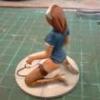-
Posts
6,651 -
Joined
-
Last visited
-
Days Won
3
Ratch's Achievements

Completely Obsessed Member (6/9)
15.4k
Ratch last won the day on December 11 2019
Ratch had the most liked content!

15.4k

Ratch replied to Ratch's topic in Figure Ready for Inspection

Ratch replied to Gruntpa's topic in Work in Progress - Aircraft

Ratch replied to Gruntpa's topic in Work in Progress - Aircraft